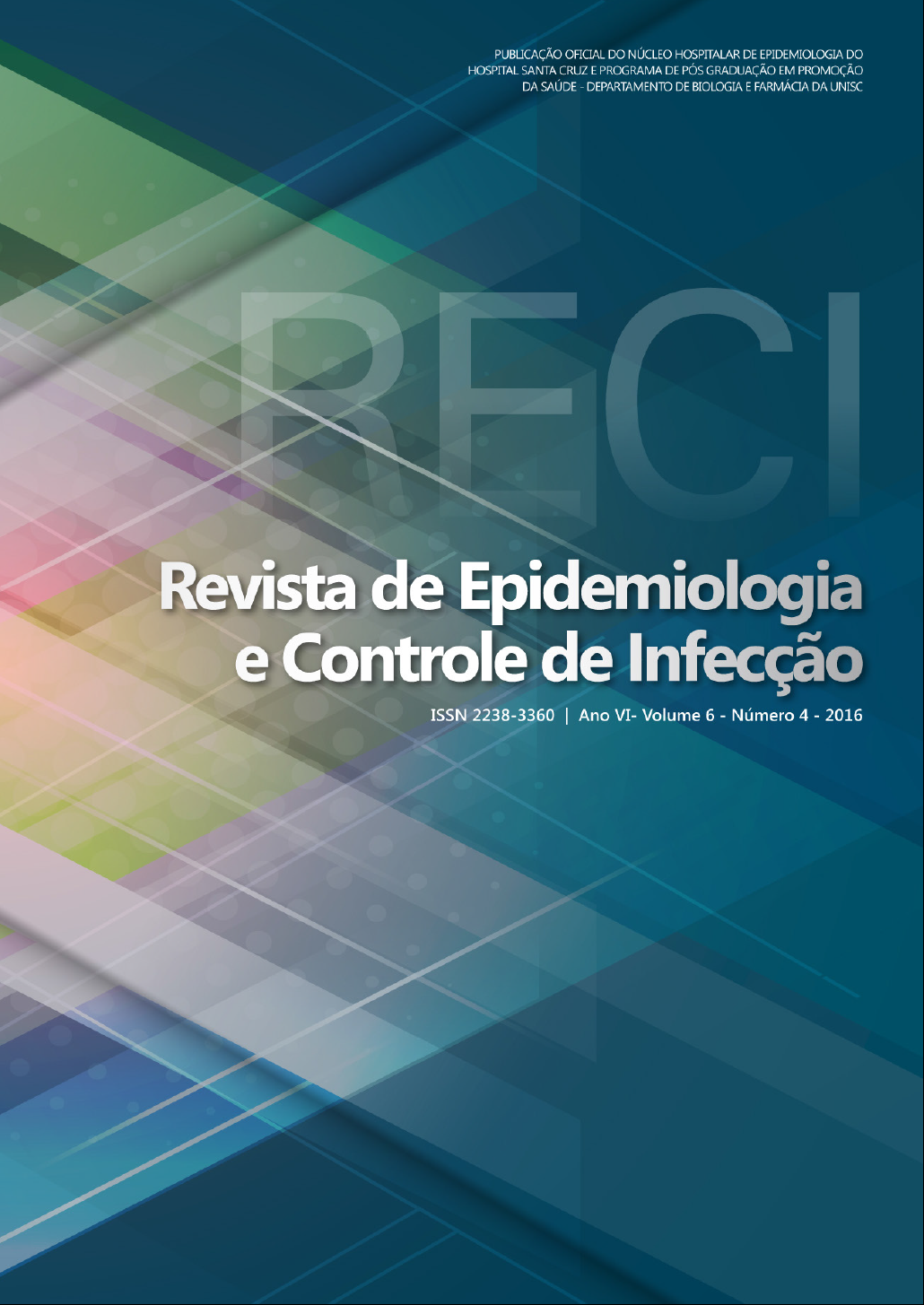Pharmacist resident role in a emergency care unit: contributing to the promotion of health
DOI:
https://doi.org/10.17058/reci.v6i4.8191Abstract
Background and objectives: The Practice of Clinical Pharmacy in Hospitals is of fundamental importance, in which the pharmacist provides patient care, enabling to optimize pharmacotherapy, promote health and well-being, in addition to preventing diseases and developing health care quality. The objective of this study was to quantify the occurrence of potential drug interactions, incompatibilities and pharmaceutical interventions in prescriptions for patients attended in an Emergency Unit (EU). Methods: This is a descriptive and quantitative study. The activities were developed in a university hospital located in the interior of Rio Grande do Sul in the period April to July 2016, by pharmaceutical resident professionals. The sample was composed of 265 prescriptions for 107 patients. Results: There was a predominance of males (51,4%) with an average of 63,41 years. It was identified 2,087 prescription drugs, with an average of 7,9 (± 3,4) drugs per prescription. From the 265 prescriptions analyzed, drug interactions were found in 25,66% and 2,26% of drug incompatibilities. There were time change interventions on 5,66% and 4,52% of medication reconciliation. Conclusion: The Pharmaceutical Clinical is fundamental importance in the hospital environment, as that study revealed a frequency of 25.66 % of drug interactions and 2.26% incompatibilities. In addition, it were held Pharmaceutical interventions of Drug Administration Schedule Exchanges in 5.66 % of prescriptions and 4.52 % for drug reconciliation, emphasizing that Clinical Pharmacy Service has a significant impact on increasing the Patient Safety and adverse events prevention.Downloads
Downloads
Published
How to Cite
Issue
Section
License
The author must state that the paper is original (has not been published previously), not infringing any copyright or other ownership right involving third parties. Once the paper is submitted, the Journal reserves the right to make normative changes, such as spelling and grammar, in order to maintain the language standard, but respecting the author’s style. The published papers become ownership of RECI, considering that all the opinions expressed by the authors are their responsibility. Because we are an open access journal, we allow free use of articles in educational and scientific applications provided the source is cited under the Creative Commons CC-BY license.


